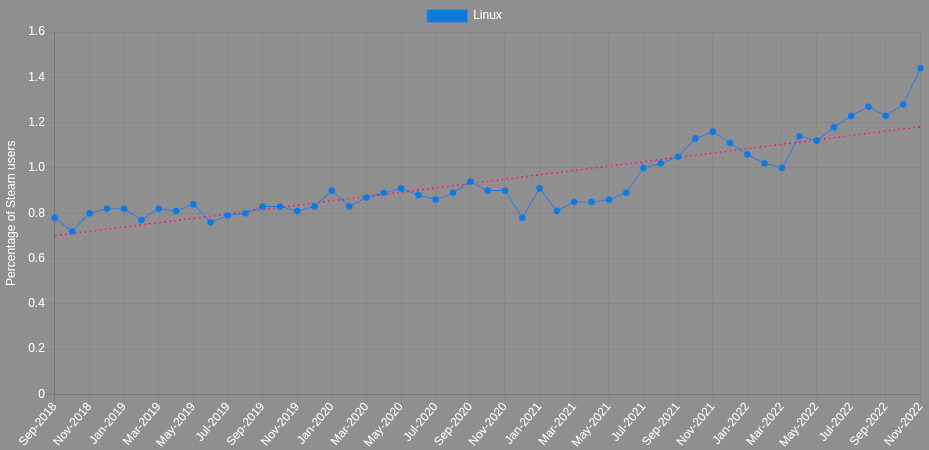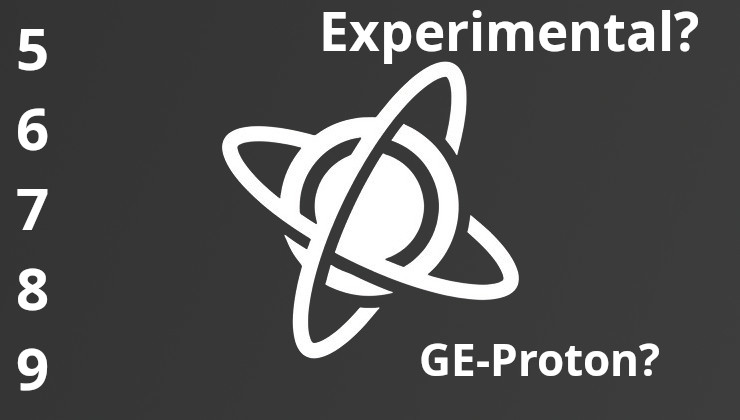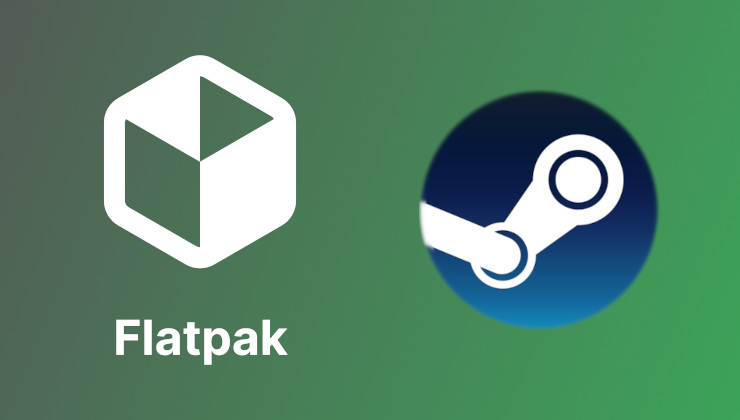November is over which means a fresh Steam Hardware Survey, and it continues the trend we've been seeing with the Linux user share rising and now it's bigger than ever.
At the end of November, Linux hit 1.44% on Steam against 2.45% on macOS and 96.11% on Windows. Going by our Steam Tracker, where we've been tracking the Linux user share for a few years, it has hit another all-time high. The usual caveat of course: tiny compared to Windows, but the trend towards Linux is clearer than ever.
This growth is easy to see is largely down to the Steam Deck, with SteamOS 3 being clearly the most popular way to play games on a Linux system now:
- SteamOS Holo 64 bit 25.77% + 0.79%.
- Ubuntu 22.04.1 LTS 64 bit 10.89% - 1.38%.
- Arch Linux 64 bit 9.37% + 0.25%.
- Manjaro Linux 64 bit 6.72% - 0.20%.
- Freedesktop.org SDK 22.08 (Flatpak runtime) 64 bit 5.82% + 0.11%.
- Linux Mint 21 64 bit 3.90% + 3.90%.
- Pop!_OS 22.04 LTS 64 bit 3.71% + 3.71%.
- Other 33.81% - 7.18%.
Unsurprisingly, the Steam Deck is also the biggest device as a whole for Linux gaming with the AMD Custom GPU 0405 taking 25.77% + 0.76% with the next most popular being the AMD Radeon RX 480 3.75% - 0.15%. It's also interesting to see that SteamOS and the Steam Deck GPU percentages match in the Linux data, along with it not showing up on the Windows data at all making Windows on Steam Deck a tiny minority.
Edit: as also pointed out rightly so in a comment, since the Deck GPU shows up now in the combined platform data for all of Steam (AMD Custom GPU 0405 0.37% + 0.05%), we can see that nearly all are on SteamOS.
Isn't counting the steam deck kind of cheating since its the hardware and not users using the desktop mode of it?From the perspective of a Linux Gamer... no, while using the Steam Deck they are Linux gamers. More Linux gamers means more support regardless if they use the desktop or not.
Hopefully the growth of Linux will continue to outpace the shipments of the Deck as more and more people get the opportunity to say, "wow, I had no idea Linux was this good."
For that, Valve does need to work on the Desktop Mode interaction. The on-screen keyboard isn't great, and the interface is too desktop-oriented to work well with the touchscreen. Another option would be an accessory keyboard/stand. Preferably one made/sold/promoted by Valve so that a) it's well integrated/supported and b) it's much more in your face that the Deck is very much usable as a regular computer.
I'm pretty new to the free software scene, and I certainly wasn't there at the time, so I can only rely on sources I could find after the fact. Hadn't Microsoft mostly stopped its campaigning against Linux by the end of the 2000s?In the end, most manufacturers of the ill-fated netbook switched over to Windows. Predominantly because Microsoft offered Windows licenses for less than they do on more powerful devices.Microsoft made Windows free for those OEMs (while forcing an insipid specs list that would ensure netbooks lost out to tablets), and had a concerted FUD campaign about customer hostility to Linux.
I don't think regular users of GNU/Linux distributions at the time needed Microsoft to tell them that they were bewildered by the operating system at the time: Ubuntu vs. College Freshman
I'm happy to be corrected, and if you could direct me to some more sources, as I'm mostly going off the Wikipedia page for Netbooks, that would be appreciated. The article I link reported that Microsoft offered licenses cheaply, not free of charge.
Hadn't Microsoft mostly stopped its campaigning against Linux by the end of the 2000s?
God, no. The end of the 2000s was the SCO case, and Microsoft's FUD campaigns were in full swing. See... essentially everything on Groklaw. But for netbooks in particular, maybe here.
(As an aside, it's interesting that you didn't notice that your linked video is part of a FUD campaign: "person has trouble with their computer" isn't actually inherently newsworthy)
I'm happy to be corrected, and if you could direct me to some more sources, as I'm mostly going off the Wikipedia page for Netbooks, that would be appreciated. The article I link reported that Microsoft offered licenses cheaply, not free of charge.
You're right, actually. I'd misremembered. The XP for netbooks was just very cheap. The free Windows came a bit later, with "Windows 8.1 With Bing" to try to compete against Chromebooks.
Last edited by CatKiller on 4 Dec 2022 at 7:33 am UTC
Microsoft mostly stopped its campaigning against Linux by the end of the 2000s?They never stopped. They are doing their ... stuff behind the curtains.
The bottom line is, netbooks with Linux on were a strong success until Microsoft stepped in to change the situation. And I have no doubt that behind the scenes it took a bit of stick along with the carrots. If Microsoft had, or even was perceived to have, less power to do that, something like them could be a success again, especially since Linux is a lot stronger now in quite a few ways (eg it will play games).In the end, most manufacturers of the ill-fated netbook switched over to Windows. Predominantly because Microsoft offered Windows licenses for less than they do on more powerful devices.Microsoft made Windows free for those OEMs (while forcing an insipid specs list that would ensure netbooks lost out to tablets), and had a concerted FUD campaign about customer hostility to Linux.
Meanwhile, ChromeOS is very user-friendly if you only want to do the very few things ChromeOS lets you do--which actually fits the use case of quite a few people. But far from everyone, even in terms of people you wouldn't really consider "power users" much less programmers. ChromeOS is limited as hell, by design. It's kind of like a MacOS with no app store. Forget walled garden, it's more like a walled planter. So I think there could be serious reasons to put real Linux on a lightweight computer instead of ChromeOS . . . serious reasons which could lead to sales if done right. There are also dumber reasons to prefer a real Linux, like it's easier to tweak the appearance for your "branding" (although it's also easy for users to un-brand it, but by that time they've bought the thing so whatever).
But for manufacturers to consider doing something like that, or other things using Linux that I have not thought of, generally requires a bit of momentum, an example showing the possibilities that gives them the confidence that this isn't an insane doomed idea. The Steam Deck represents that example and momentum, so I think it creates a moment where doing Linux stuff on specialized computers is significantly more business-possible. Consider the way, before the Deck came out, even here on GoL lots of people were saying well, all the users will rip Linux out and install Windows. It didn't happen, like at all, and now that idea as a general piece of "what happens when you sell devices with Linux on them" lore is significantly weakened.
Last edited by Purple Library Guy on 3 Dec 2022 at 6:28 pm UTC
See Munich... I can't believe no one was indicted for that.Microsoft mostly stopped its campaigning against Linux by the end of the 2000s?They never stopped. They are doing their ... stuff behind the curtains.
I think KDE is working on their Desktop on small touchscreens out of their own interest (and Valve may still put some money in)Hopefully the growth of Linux will continue to outpace the shipments of the Deck as more and more people get the opportunity to say, "wow, I had no idea Linux was this good."
For that, Valve does need to work on the Desktop Mode interaction. The on-screen keyboard isn't great, and the interface is too desktop-oriented to work well with the touchscreen. Another option would be an accessory keyboard/stand. Preferably one made/sold/promoted by Valve so that a) it's well integrated/supported and b) it's much more in your face that the Deck is very much usable as a regular computer.
I really like touchpad typing, yet the keyboard could certainly be better. Wished valve would just make it OpenSource or at least documented and switchable.
SteamOS 3.4 is already heaps away from 3.3. I modded Trombone champ yesterday and KDE connect integration alone is a game changer for such things.
Last edited by const on 4 Dec 2022 at 5:01 pm UTC
When Valve first integrated Proton into Steam I predicted it would be about five years before we overtake Apple. I didn't expect it to require the Steam Deck to do it, but I'll take it.
You're being generous today. ;)
An interesting figure in itself. So like, Linux is at 1.44%. And Steam Decks, almost entirely running Linux, are 0.37% (and climbing). So that means Linux without Steam Deck is 1.07%, and the Steam Deck represents just over a quarter of total Linux use on Steam.
At this point, the Deck is already giving Linux use a substantial boost. And as I understand it, for the first few months of release sales were significantly constrained by manufacturing capacity; they're faster now. If sales continue at the present rate, that's probably at least 0.5% per year and quite likely more. Which, put like that, doesn't sound like a whole lot--but it agrees with Gradyvuckovic's take that Steam Deck could take Linux Steam usage over Mac by 2024.
It's certainly way faster growth than Linux gaming has ever seen.
It should be sooner than that. You are counting 0.5% per year, but Steam Deck sales at the beginning of this year wasn't as big, so the 0.5 figure isn't accurate. If we go by October's numbers: (2.45 - 1.44) / (1.44 - 1.28) = 7 months or so. So, if the current pace continues we should see Linux overtaking macOS in July 2023.
I don't know about the months before, but last month, Mac grew stronger (percent-point wise) than Linux (+0.22% vs. +0.16%). I still think we're going to take 'em sooner or later.
It's very frustrating to learn that Microsoft murdered GNU/Linux on netbooks, leaving the market open for Google to move in with ChromeOS when there was still a good deal of time for mainline distributions to mature on that architecture. Likely the first time GNU/Linux came close to achieving its original goal of powering a desktop computing device in any significant way.But for manufacturers to consider doing something like that, or other things using Linux that I have not thought of, generally requires a bit of momentum, an example showing the possibilities that gives them the confidence that this isn't an insane doomed idea. The Steam Deck represents that example and momentum, so I think it creates a moment where doing Linux stuff on specialized computers is significantly more business-possible.In the end, most manufacturers of the ill-fated netbook switched over to Windows. Predominantly because Microsoft offered Windows licenses for less than they do on more powerful devices.Microsoft made Windows free for those OEMs (while forcing an insipid specs list that would ensure netbooks lost out to tablets), and had a concerted FUD campaign about customer hostility to Linux.
Consider the way, before the Deck came out, even here on GoL lots of people were saying well, all the users will rip Linux out and install Windows. It didn't happen, like at all, and now that idea as a general piece of "what happens when you sell devices with Linux on them" lore is significantly weakened.
I would expect most people to just stop using the device over installing another operating system on it. It's just not something most people are comfortable with—even the more technical audience that the Steam Deck is aimed at. I think this opinion was misguided even assuming the Steam Deck was this massive failure it didn't end up being.
For a personal computer, ChromeOS or GNU/Linux make similar sense, though you at least know Google has your back with ChromeOS, but for professionals, there is a big gap because some software is not available—namely, Adobe/Affinity Suite. If OEMs like ASUS, Dell, Lenovo, HP, and Acer teamed up to work on WINE for a limited number of important creative software like Adobe, Affinity, Ableton Pro, Microsoft Office etc., that gap could be closed in a similar way (essentially what CrossOver does, but more successful). The problem is that the hardest thing to get working is often the DRM, not the actual functions of the software...so Adobe would be the hardest. And it also seems...unlikely to happen. But that's what it would take.
I would expect most people to just stop using the device over installing another operating system on it. It's just not something most people are comfortable with—even the more technical audience that the Steam Deck is aimed at. I think this opinion was misguided even assuming the Steam Deck was this massive failure it didn't end up being.There is more to it. There are people dual booting the SteamDeck and it's pretty established SteamOS is simply the better experience. Most cited reason to use Windows anyway is because people are invested in GamePass, which is understandable. People using Windows on SteamDeck because they consider it a better option is a minority in a minority in a niche. There are certainly more people choosing SteamOS even though they use GamePass, which is why GamePass on SteamOS might still be possible. MS is that desperate to keep people in their service.
For a personal computer, ChromeOS or GNU/Linux make similar sense, though you at least know Google has your back with ChromeOS, but for professionals, there is a big gap because some software is not available—namely, Adobe/Affinity Suite. If OEMs like ASUS, Dell, Lenovo, HP, and Acer teamed up to work on WINE for a limited number of important creative software like Adobe, Affinity, Ableton Pro, Microsoft Office etc., that gap could be closed in a similar way (essentially what CrossOver does, but more successful). The problem is that the hardest thing to get working is often the DRM, not the actual functions of the software...so Adobe would be the hardest. And it also seems...unlikely to happen. But that's what it would take.
I think Valve this time proved excellent timing. The chip shortage made Sony and XBox press hard on getting consumers outside their hardware ecosystem. EGS is getting pushed back hard. The Deck profits from these developments and establishes an ecosystem this way. I hope Valve will add new SteamOS based hardware, soon to maintain the momentum.
Last edited by const on 5 Dec 2022 at 12:50 pm UTC
but for professionals, there is a big gap because some software is not available—namely, Adobe/Affinity Suite. If OEMs like ASUS, Dell, Lenovo, HP, and Acer teamed up to work on WINE for a limited number of important creative software like Adobe, Affinity, Ableton Pro, Microsoft Office etc., that gap could be closed in a similar way (essentially what CrossOver does, but more successful). The problem is that the hardest thing to get working is often the DRM, not the actual functions of the software...so Adobe would be the hardest. And it also seems...unlikely to happen. But that's what it would take.Well, I quite agree there. I myself found, while I was working from home during pandemic closure of my workplace, that while for the most part I had no trouble using my Linux desktop for work (documents on LibreOffice were fine and our specialized library stuff is browser-based), wrangling .pdfs without Adobe stuff was really bad or just couldn't be done, depending what I was trying to do.
Well, maybe if System76 get big enough, they'll collab with CrossOver about pushing that.
Last edited by Purple Library Guy on 5 Dec 2022 at 6:37 pm UTC
As someone who regularly works with .psd, .aep and .indd files for work, there is no replacement for Adobe software for me. Just supporting Adobe software (all ~5 of the big ones, PS, AI, PR, AE, IND, LR) would make GNU/Linux viable for a lot of professionals. Of course, this is far from easy. There was a time when CrossOver supported Photoshop, back in the CS2 days, and Google SoC was helping with this. That time is long gone. Adobe's DRM is among some of the most complicated and invasive on the market today. As close to an official statement as you'll get on supporting DRM in WINE:but for professionals, there is a big gap because some software is not available—namely, Adobe/Affinity Suite. If OEMs like ASUS, Dell, Lenovo, HP, and Acer teamed up to work on WINE for a limited number of important creative software like Adobe, Affinity, Ableton Pro, Microsoft Office etc., that gap could be closed in a similar way (essentially what CrossOver does, but more successful). The problem is that the hardest thing to get working is often the DRM, not the actual functions of the software...so Adobe would be the hardest. And it also seems...unlikely to happen. But that's what it would take.Well, I quite agree there. I myself found, while I was working from home during pandemic closure of my workplace, that while for the most part I had no trouble using my Linux desktop for work (documents on LibreOffice were fine and our specialized library stuff is browser-based), wrangling .pdfs without Adobe stuff was really bad or just couldn't be done, depending what I was trying to do.
Well, maybe if System76 get big enough, they'll collab with CrossOver about pushing that.
In an effort to make copy protection more effective (i.e. resistant to cracks), the methods used by many copy protection products have become complex, difficult to understand (obfuscated), and hard to debug. In some cases Wine would need to be altered to allow for almost rootkit-like functionality of programs to get some of these copy protection schemes to work. To support copy protection Wine developers have to contend with undocumented interfaces, code obfuscation, and maintaining compatibility with *nix security models.So while it might be possible, I think it's going to require a lot of resources to support and maintain as Adobe continues to make it harder to support.
!Annotated timeline with local trendlines
Link to imgur
I annotated the timeline with SteamDeck announcement and Release and added the trendlines shown, when filtering to the specific timeframes (always including the moments, so there's 1 month of overlap).
Wanted to add the Proton release, but there is no data pre-Proton, anyway :D
You can clearly see the spike in people trying out Linux after the announcement (+LTT coverage) that lost momentum early 2022. Next months will indeed be very interesting...
The single linear line really doesn't cut it anymore.
@Lieam, we should have one before and one since Deck release.











 An idiots guide to setting up Minecraft on Steam Deck / SteamOS with controller support
An idiots guide to setting up Minecraft on Steam Deck / SteamOS with controller support How to install extra software, apps and games on SteamOS and Steam Deck
How to install extra software, apps and games on SteamOS and Steam Deck
See more from me